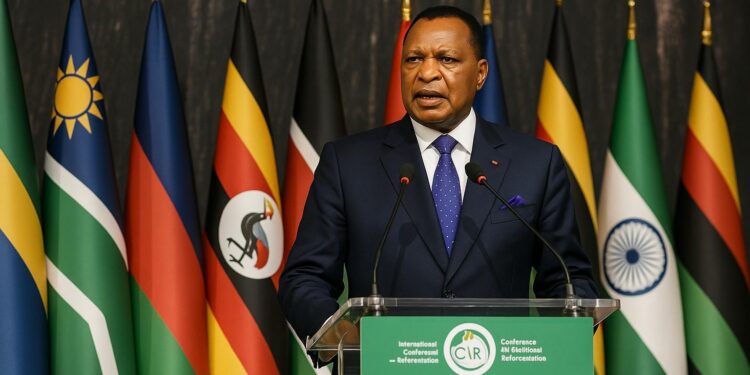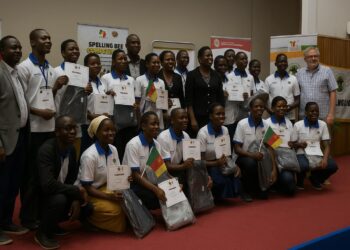Congo’s Green Statecraft Gains Momentum
From the banks of the Congo River, Brazzaville has made environmental diplomacy a signature theme, framing its forests as strategic assets in the global fight against warming. President Denis Sassou Nguesso’s government now links ecological stewardship to sovereignty, regional stability and sustainable growth.
In July 2024 the capital hosted the inaugural International Conference on Afforestation and Reforestation, recognised by the United Nations as the springboard for the forthcoming Decade on Ecosystem Restoration. Delegations from five continents applauded Congo’s pledge to keep annual deforestation below 0.05 percent, a rate corroborated by Global Forest Watch and the FAO.
Officials emphasised continuity with earlier milestones, including the 1986 National Tree Day and the 2020 launch of a Decade of National Reforestation. Ministry sources say these observances have planted more than 32 million seedlings, providing the narrative backbone for Congo’s present diplomatic outreach.
Financing the Second Lung of the Planet
Central Africa hosts the world’s largest intact tropical forest after the Amazon, yet World Bank figures show the region receives roughly twenty-five times less forest-related finance than its South American counterpart. Brazzaville now frames this disparity as a question of climate equity.
During the July conference, ministers from Gabon, Ghana and Ethiopia joined Congo in calling for five billion dollars in blended finance over ten years. The African Development Bank, present in Brazzaville, signalled readiness to structure green bonds tied to verified carbon storage.
Congo’s negotiators argue that stable governance, certified concessions and a regional goal of ten million hectares under sustainable management create a predictable investment environment. Fitch Ratings recently confirmed Brazzaville’s sovereign outlook as stable, a data point officials highlight when courting institutional investors.
Indigenous Knowledge in Global Negotiations
Any diplomatic roadmap, the government insists, must rest on community legitimacy. In September 2023 Brazzaville staged the first World Congress of Indigenous Peoples from the Amazon, Congo Basin and Southeast Asia, giving grassroots leaders microphone access rarely offered in multilateral halls.
Speakers such as Indonesian activist Rukka Sombolinggi urged donors to channel resources directly to local associations, arguing that traditional custodians manage about 80 percent of the world’s remaining forests. Congo endorsed the call, referencing its 2022 law recognising Indigenous land rights—praised by Amnesty International as a regional benchmark.
Women’s platforms, notably the Alliance of Women Leaders for Forests, drafted a Brazzaville Roadmap that pairs customary tenure with modern agro-forestry techniques. Government negotiators now cite this document in Green Climate Fund submissions as proof of social safeguards, increasing the likelihood of project approval.
Peatlands: Congo’s Hidden Carbon Bank
Below the swampy canopy of the Cuvette lies the planet’s largest tropical peat complex, locking an estimated 30 billion tonnes of carbon—more than the emissions of the United States over two decades, according to a 2017 Nature study.
Congo, the Democratic Republic of Congo and Indonesia signed the Brazzaville Declaration in 2018, vowing joint scientific monitoring. UNEP data show that preserving these peatlands could avoid up to seven gigatonnes of CO₂ releases by 2050, rivalling some G20 mitigation pledges.
Yet Congo has secured fewer than 100 million dollars for peat protection, compared with Indonesia’s two-billion-dollar finance packages. A dedicated international conference scheduled in March 2026 aims to standardise monitoring protocols and design payment-for-ecosystem-service schemes acceptable to carbon markets.
Balancing Development and Conservation
Congo’s cabinet insists that green policy cannot ignore economic imperatives. Oil still represents 45 percent of national GDP, IMF estimates show, but officials stress diversification toward certified timber, non-timber forest products and eco-tourism.
The Loango-Ibenga agro-industrial corridor, co-funded by the French Development Agency, is presented as a pilot where zero-deforestation standards coexist with job creation. Early assessments by CIRAD indicate that cocoa farmers there doubled incomes while maintaining canopy cover above 70 percent.
Diplomats argue such case studies demonstrate that Congo’s climate diplomacy is not a rhetorical exercise but a template for inclusive growth aligned with Sustainable Development Goals.
Toward the United Nations Decade on Reforestation
As momentum builds ahead of the UN General Assembly in 2026, Congo plans to submit a resolution formally proclaiming 2027-2036 the Decade of Afforestation and Reforestation. Draft language already circulates among the Africa Group and the Non-Aligned Movement.
Foreign Minister Jean-Claude Gakosso says the goal is to elevate forests to “the same diplomatic stature as energy or security”. Analysts at Chatham House note that success might hinge on Brazil’s co-sponsorship, which would signal North-South alignment on carbon sinks.
Congo’s outreach campaign includes study tours for diplomats in the Lefini Reserve, where conservation rangers employ drone surveillance supplied by Chinese partners. These site visits, officials claim, convert abstract negotiations into tangible experience, accelerating consensus.
Measuring Success and Remaining Gaps
Observers caution that turning pledges into outcomes requires robust data. The Central African Forest Observatory is rolling out near-real-time satellite dashboards funded by the European Space Agency, allowing verification of tree-planting claims within days rather than years.
Civil-society monitors such as the Observatoire Congolais des Droits de l’Homme recognise progress yet request more transparency on concession maps and carbon-credit revenue sharing. Government advisers respond that forthcoming regulations will earmark 15 percent of carbon proceeds for community projects.
The litmus test, states Oxford climate economist Charlotte Streets, will be whether Congo can simultaneously lower poverty, maintain forest integrity and attract the scale of climate finance currently focused on the Amazon and Southeast Asia.
A Forward-Looking Diplomatic Laboratory
For Congo, climate diplomacy is no longer peripheral but central to its international identity. By positioning forests and peatlands as global public goods, Brazzaville stakes a claim to leadership that extends beyond Central Africa.
If forthcoming summits translate commitments into bankable projects, Congo could redefine the terms of South-South cooperation and offer a replicable model where ecological stewardship, indigenous empowerment and macro-economic stability converge in mutual reinforcement.












































